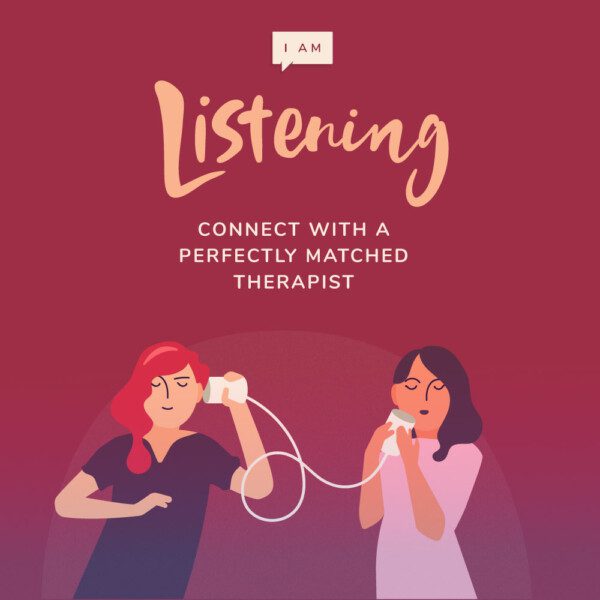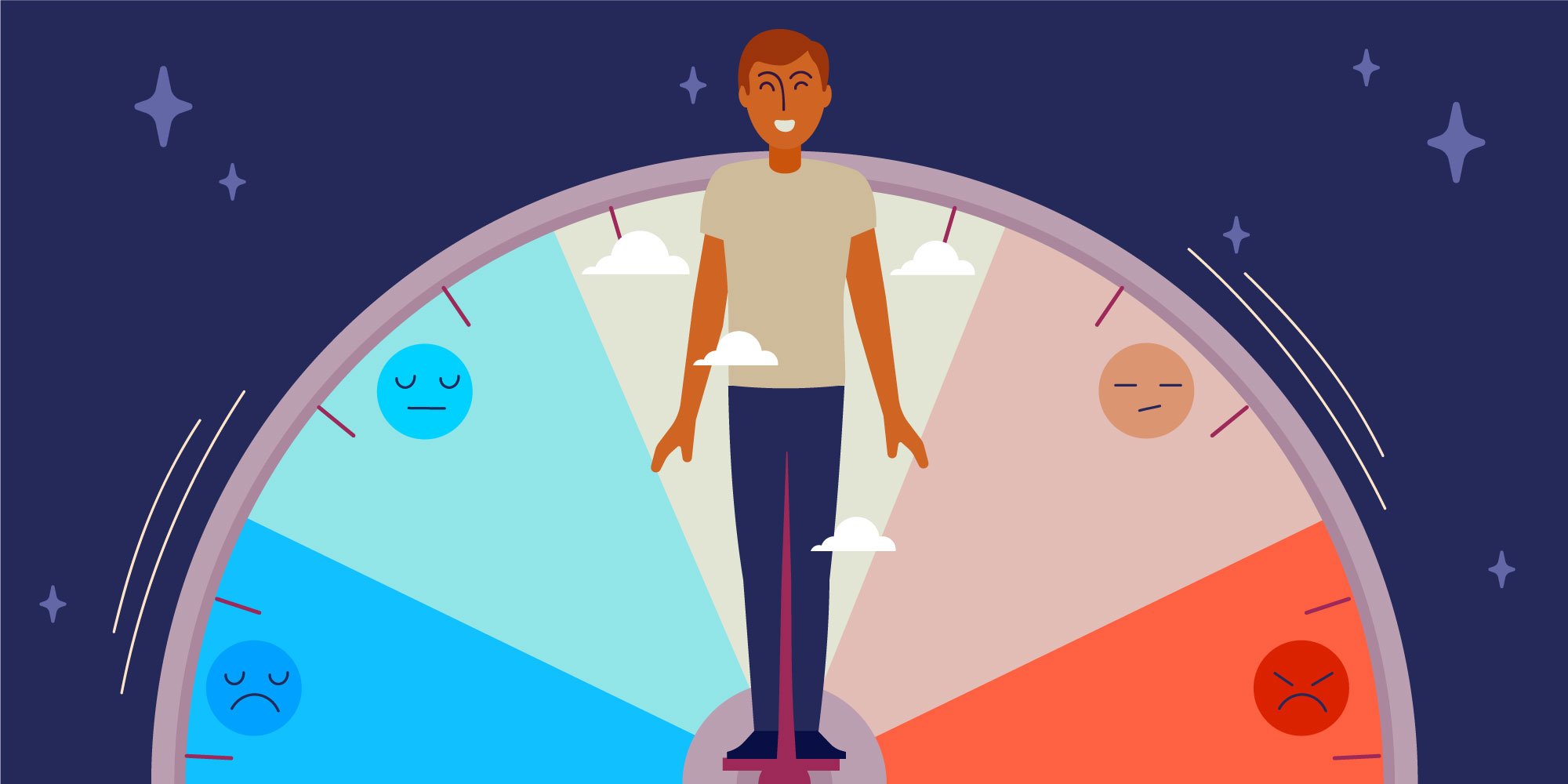Even though bipolar disorder was recognized as a distinct condition by the mental health professionals back in the 20th century, people who are suffering from it still get misdiagnosed and mistreated.
Every year, on March 30th we celebrate World Bipolar Day to raise awareness of bipolar disorder worldwide.
Of course, the term “bipolar disorder” hasn’t been brought to us until 1980. Before that, medical professionals, psychiatrists, psychologist, and therapists used the term manic-depression to describe the same condition. (1)
According to Depression and Bipolar Support Alliance, National Institute of Mental Health reports that every year bipolar disorder affects approximately 5.7 million Americans over the age of 18 which is about 2.6% of the U.S. adult population. Additionally, research indicates that women are three times more likely to suffer from this disorder than men.
So, what is bipolar disorder? What’s the treatment for it? Can you lead a successful life while dealing with it?
The primary characteristic of this disorder is the dramatic shift in mood, activity levels, and energy. These shifts are not the usual ups and downs experienced by everyone. Instead, they are so severe they affect individual’s ability to carry out their daily tasks. (2)
However, as you’ll see, with right help and support life with bipolar disorder can be manageable, happy and fulfilled.
Living with Bipolar Disorder
Do you know what Mel Gibson, Demi Lovato, Ernest Hemingway, Kurt Cobain, Frank Sinatra and Winston Churchill have in common? All of these people had or have a highly successful career, they are adored by many people around the globe, and they all struggled or are still struggling with bipolar disorder. (3)
As we’ve mentioned earlier, bipolar disorder is characterized by the two sets of symptoms, manic and depressive, which are usually described as “mood episodes.”

Manic and a hypomanic episode include at least three of these symptoms:
- Increased energy, activity or agitation
- Abnormally upbeat, wired or jumpy
- Unusual talkativeness
- Euphoria – exaggerated sense of self-confidence and well-being
- Racing thoughts
- Poor decision-making — for example, shopping sprees, risky sexual behavior, foolish investments
- Distractibility
- Decreased need for sleep·
On the other hand, the major depressive episode includes at least five of these symptoms:
- Depressed mood – feeling sad, tearful, hopeless and/or empty (in children and teenagers, depressed mood can manifest as irritability)
- Significant loss of interest or feeling of pleasure in almost all (or all) activities
- Experiencing inappropriate or excessive guilt or worthlessness
- Decreased ability to concentrate and think, or indecisiveness
- Suicidal thoughts, plans or attempts
- A significant change in weight and appetite when not dieting
- Sleeping too much or insomnia
- Slow body movement or restlessness
- Fatigue and loss of energy
 Due to so many different, severe symptoms, living well with bipolar disorder requires patients to make certain adjustments. Once people start with the proper treatment (including medication and therapy) and start making healthy life choices, they have much more success in taking control of their lives, minimizing mood episodes and keeping their symptoms under control in general. We've partnered with MyTherapist.com to help you or a loved one take the first steps to get that treatment they need.
Due to so many different, severe symptoms, living well with bipolar disorder requires patients to make certain adjustments. Once people start with the proper treatment (including medication and therapy) and start making healthy life choices, they have much more success in taking control of their lives, minimizing mood episodes and keeping their symptoms under control in general. We've partnered with MyTherapist.com to help you or a loved one take the first steps to get that treatment they need.
How can you bring balance to your life?
If you already have a therapist and are looking for more help, here are some tips that will help you or a loved one bring balance to life with bipolar disorder below. If not please click here to be connected with a perfectly matched Therapist.
Monitor your moods and symptoms
If you want to stay balanced, you’ll need to be mindful considering the way you feel. When obvious symptoms of depression or mania appear, it will be too late to intercept the mood shift.
What you need to do is keep a close watch for subtle signs. Little changes in your mood, energy level, sleeping patterns, and cognition are essential. If you catch them early and act responsibly, you might prevent them from turning into a full-blown mood episode.
The first step toward close self-monitoring and maintaining balance is recognizing your triggers and early warning signs. The best way to do this is to sit down and list out all of the early symptoms that preceded previous mood episodes. Focus on potential triggers, inner and external occurrences that may have happened during that time and potentially led to manic or depressive episodes in the past.
This is the list of common triggers among people dealing with bipolar disorder:
- Stress
- Conflicts in with loved ones
- Problems at work or school
- Lack of sleep
- Financial difficulties
- Seasonal changes
It is vital that you don’t let these subtle changes slip in and get lost in your busy schedule. One way to ensure this is by keeping a mood chart. You are strongly encouraged to keep a daily log of your emotional state, behavioral, cognitive and other symptoms.
Mood chart will also help you keep track of how much you are sleeping, changes in your weight, medications you’re taking, and any risky behavior like alcohol or drug use. Keeping a close eye on your physiology and behavior will bring balance to your life by allowing you to spot patterns and indicate potential threats.
Maintain an active daily routine
When you are dealing with bipolar disorder, having a structure and routine in your life is often the best and the safest path to finding balance. Your lifestyle choices and the tiniest, most mundane details, such as your sleeping and eating schedule or physical activity patterns have a great impact your moods.
Build a good structure – Developing and carrying out your daily schedule can keep the mood swings stable. Set exact times for sleeping, having meals, exercising, relaxing, working and socializing. Do your best to maintain a regular pattern of activity even when emotional ups and downs appear. This way, your everyday life will be balanced.
Stay physically active and avoid sitting for long periods – Exercise may reduce the number of bipolar episodes. Choose whatever you like – running, dancing, swimming hiking or drumming. Activities that keep both your arms and legs active are effective at battling depression.
Incorporate at least half an hour of exercise into your daily routine. Walking is always a good idea, as it gives you a chance to clear your mind. (4)
Stay strict about your sleeping schedule – Lack of sleep can trigger mania. On the other hand, too much sleep can worsen your mood just as well. So, make sure that you are getting plenty of rest, but not too much and keep a consistent sleep schedule. Here’s what you can do to ensure your sleeping habits are balanced:
- Wake up and go to sleep at the same time every day
- Avoid napping
- Do something relaxing before bed and avoid viewing screens or engaging in stimulating activities
- Limit caffeine and alcohol intake at night. (5)
To help you establish this routine we have created many challenges including our 30 Days of Brave Challenge. It's designed to get you up, starting that healthy routine and accomplishing your goals by getting you into that healthy rhythm. What could you do in 30 days with just 5 minutes a day? Join us today and give it a try for free:

Practice meditation
There is no better way to bring balance to your life than through meditation. Fortunately, there are meditations you can practice during both depressive and manic emotional states. Here’s what to do in each:
When depressed – stay mindful. Bring your attention to whatever you are doing at the moment. Stay present. Notice the movements of your body. Concentrate on what you feel under your fingers, how you move and what you are registering through your senses.
Whenever you catch yourself starting the thought spiral of sadness or worthlessness, gently return your focus to the task. This way, you’ll find yourself noticing details you usually oversee. You’ll have better attention and do a more careful job. Do this with each task you have ahead of yourself and go one step at a time.
When manic – the moment you feel an impulse to do something – stop. Set the timer on your watch for one minute. Turn your focus inward and pay attention to whatever you are experiencing at the moment. Allow your attention to naturally flow wherever it goes.
Focus on your senses and notice what you’re experiencing. Don’t judge whether it’s good or bad, just be present. If you find your thoughts are racing, ground them in the present moment by naming them, like this: “Now I am thinking of what I’ll do later.” Stay in the moment as it changes, and register that change. Enjoy the peace and let your pressing urges diminish.
People often mix finding balance with relaxing. When you are dealing with bipolar disorder, things are never that simple. You need to invest time and effort in maintaining routine and purposefully keep the balance. However, you will find this effort surprisingly effective and soothing.


